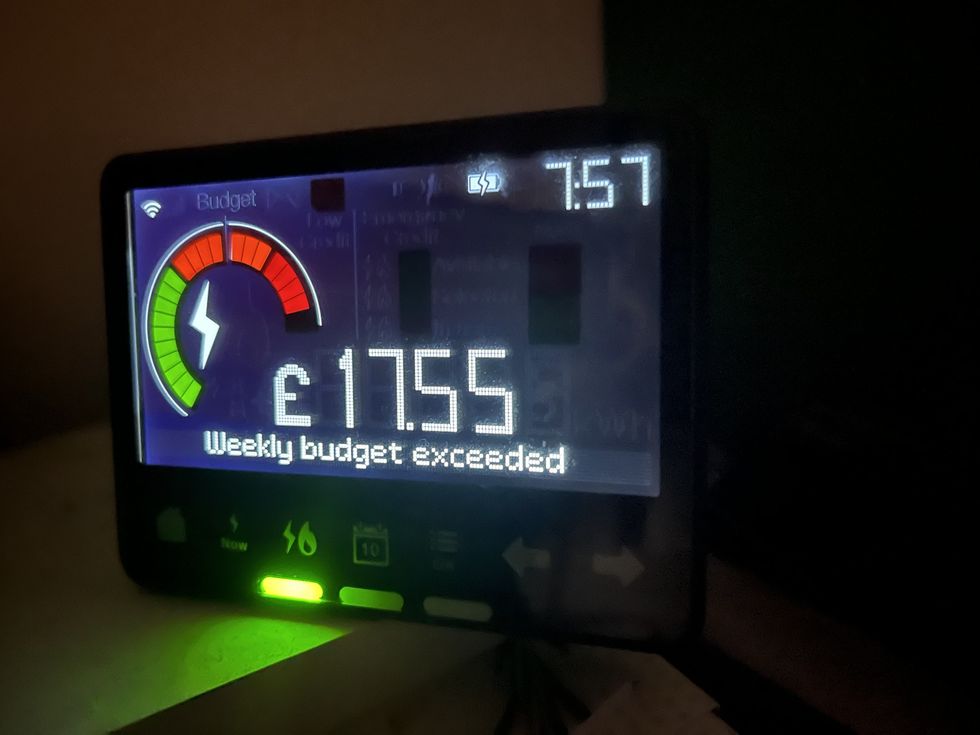Almost one million households across the UK could face higher energy bills and disruption to their heating systems if they fail to replace their outdated meters before next summer.
More than 800,000 homes with older Economy 7 and multi-rate electricity meters must upgrade to smart meters before June 2025, when the Radio Teleswitch Service will be permanently switched off.
The shutdown could leave affected households unable to access cheaper off-peak energy rates, potentially leading to significant bill rises
Some properties might even experience problems with their heating and hot water systems, either remaining permanently on or off, if they don’t take action.
Energy customers are being urged to contact their suppliers immediately to arrange a free smart meter replacement to avoid any complications.
 The phasing out of RTS meters is part of a broader modernisation effort in the UK’s energy infrastructureGETTY
The phasing out of RTS meters is part of a broader modernisation effort in the UK’s energy infrastructureGETTYThe Radio Teleswitch Service (RTS), introduced in the 1980s, allows older meters to switch between peak and off-peak rates and control heating and hot water systems.
Without replacement before the June 2025 deadline, affected meters will stop functioning properly, potentially causing serious disruption to households.
The main risks include heating and hot water systems operating at incorrect times, leading to higher costs during peak rate periods.
Suppliers may also struggle to accurately bill customers for their electricity usage, as they won’t be able to distinguish between peak and off-peak consumption.
The switch-off will also limit tariff choices for those still using RTS meters, as providers phase out support for these older systems.
Smart meters will enable customers to continue benefiting from automatic peak and off-peak rates, similar to their current arrangements.
Eleven major energy suppliers have committed to helping customers transition from old meters before the shutdown. Those participating include British Gas, EDF, E.On, Octopus, Ovo, Scottish Power, So Energy, SSE, Total Energies, Utilita and Utility Warehouse.
Customers will be able to keep the same or very similar tariffs when switching to smart meters, according to statements from the major providers.
There may be slight adjustments to peak and off-peak timings, depending on location, but these changes should be minimal.
For homes unsuitable for standard smart meters, perhaps due to poor mobile signal, suppliers will provide alternative solutions.
Energy companies will contact affected customers, but households don’t need to wait – they can reach out to their supplier now to arrange a free replacement.
The energy industry has launched a coordinated action plan to accelerate the replacement of RTS meters across the country. At the current pace, replacing all affected meters would take until 2028.
The initiative includes targeting regional “hot spots” where RTS meters are most prevalent. Vulnerable customers will be prioritised for meter upgrades as part of the industry-wide strategy.
Energy suppliers have committed to sharing technical expertise and issuing monthly progress reports on meter replacements. Industry regulator Ofgem, trade association Energy UK, and consumer groups are supporting the replacement programme.
The upgrade to smart meters comes at no cost to customers, with suppliers covering all installation fees.
Households affected by the RTS switch-off won’t face any charges for the mandatory meter replacement.